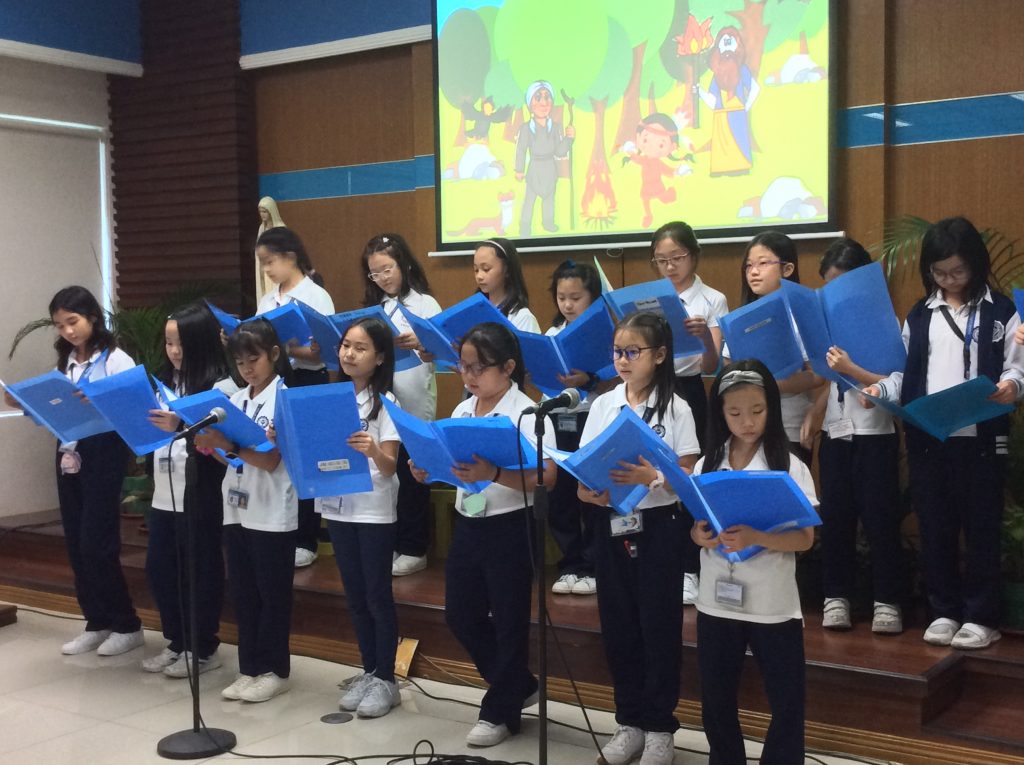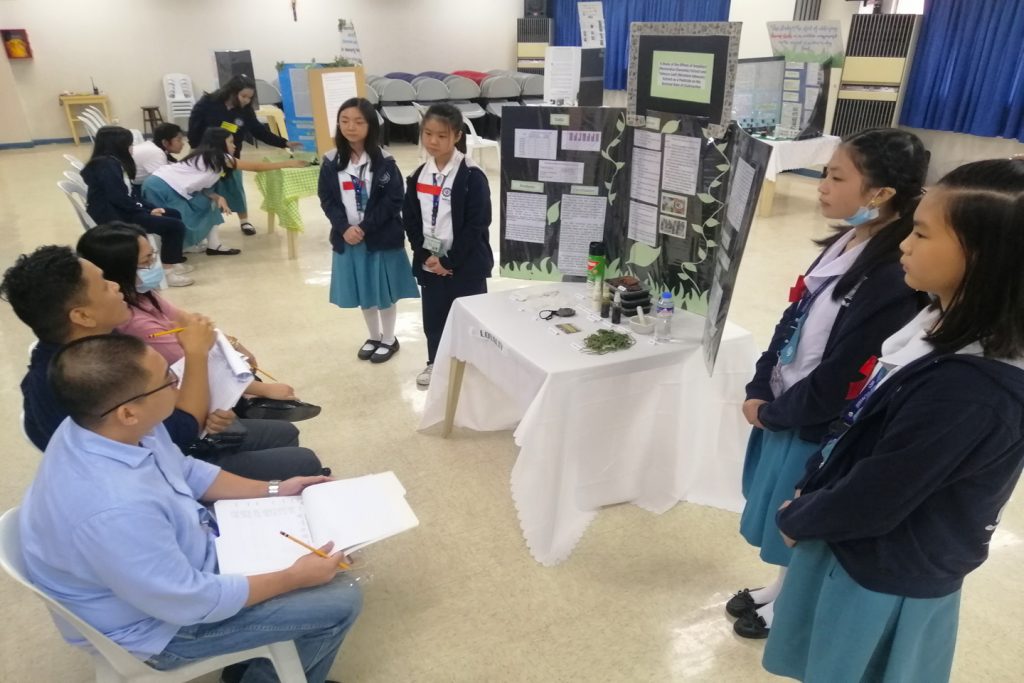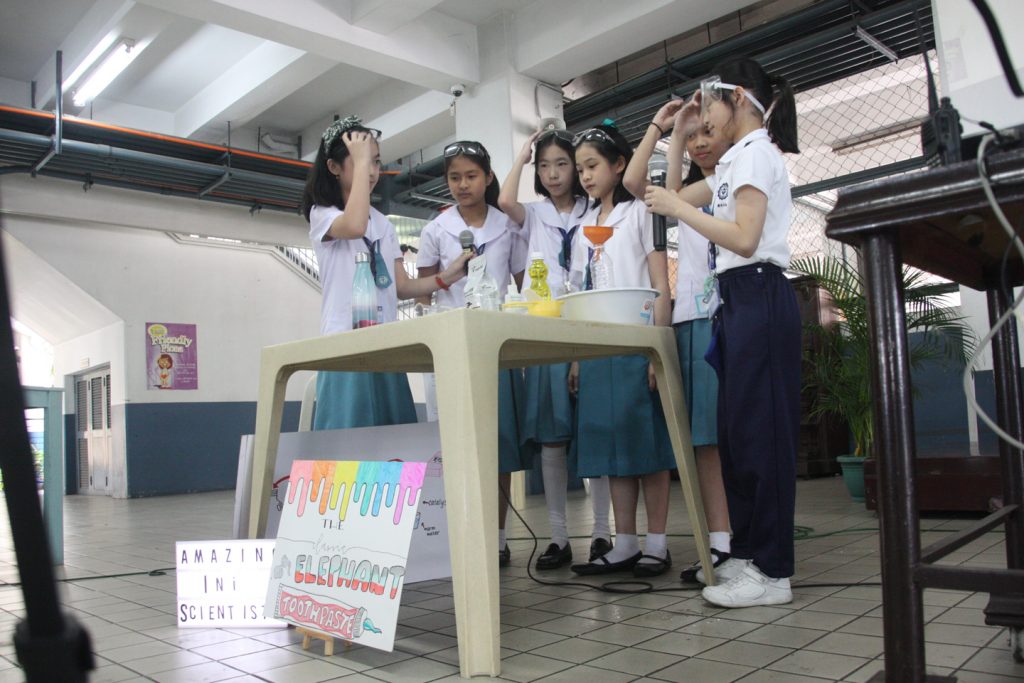The Civics and Culture Area deals with the study of the relationship of man to society and government as well as his roles, duties, responsibilities, rights and privileges as a citizen of his country and of the world. It is about understanding and appreciating one’s culture and history as foundation of good citizenship.
It aims to stress the development of the humane and nationalistic qualities of the Filipinos, the development of moral and spiritual values and pride in the Filipino-Chinese heritage. It strives to inculcate in the young minds of the grade school pupils’ genuine love of neighbors, love of country, care and concern for the environment.
In Grades One and Two, music and arts are specifically integrated in the curriculum. Creative self-expression through these areas is highly encouraged for a holistic development of the pupils.
In Grade Three, the contents of the curriculum are expanded and enriched to include the learning areas as related to history, geography and work ethics that develop an awareness of the world of work in the home and in the community.
In Grade Four, the teaching of geography will enlighten the minds of the pupils on the characteristics of or features of the world. It entails discussion on the location, physical feature, climate, population and other factors in our physical and cultural environment. A thorough knowledge and genuine appreciation of one’s culture, history and civilization will lead the students toward greater global awareness, unity, harmony and pride.
In Grade Five, the lessons on lives and deeds of great Filipinos, historical events in the country and significant changes in the Philippine communities are part and parcel of history in this learning area. It is expected that through these lessons, the youth will learn to value the Filipino race to which they belong. It is expected that the youth will see the value of every fight for freedom, honors and progress of the country staged by many Filipino leaders. The study of our history will help them understand the present status of our society and will help them in making plans for a brighter and richer future.
In the study of the Grade Six level curriculum, the pupils will be familiar with the beginnings of the Filipino race – the different ethnic groups, dialects, customs and traditions and their ways of living. It also includes lessons aimed towards the pupils’ understanding of the importance of the government and its role in looking after the welfare of the people, the country and in the family of nations. All these are discussed within the context of the 1987 Philippine Constitution.
In Grade Seven, the community is the focus of the curriculum. In today’s global community, changes and emerging patterns affect people, politics and economy, history and culture. The curriculum is an introduction to world studies. The lessons expose the pupils into the complexities that the Philippines’ is facing in the 21st century. The Philippine Community, in its encounter with history and its struggle to survive and adhere to the democratic principle it stands for, has gone a long way from the pre – barangay era up to the information age. The women ‘s place in society, their rights and privileges, equal opportunity for employment and livelihood are given emphasis in this course as well as environmental consciousness leading to becoming a more concerned studentry.
Since JUSTICE, PEACE and POLITICAL EDUCATION are integral in all lessons, the course sets the foundation of Nationalism and Patronage to anything Filipino and sustain the respect for universal values – PEACE, LOVE, JUSTICE and TRUTH.
To transform a society based on democratic principles and respect for thee constitution, the curriculum will pave the way for students to be agents of change and instruments to bring peace, harmony and progress in our society.
ICA’s educational program aims to inculcate a sound and balanced nationalism in its pupils and develop in them the qualities of a committed citizen–appreciative of her Filipino cultural heritage, loyal to the Filipino nation and actively involved in the building of a truly Christian Philippine society.
Owing to the distinctive origin of its pupils, ICA aims to foster in them an appreciation of their unique identity by developing in them a greater awareness and love for their Chinese cultural traditions and by helping them blends these with Filipino traditions.





